Massamagrell, Valencia, Spain – November 7-8, 2024. The town of Massamagrell, Valencia, hosted the III International Congress on Journalism and Communication: The Way of the Holy Grail (III CIDyPECSG), an event that brought together experts, academics, and cultural enthusiasts to explore the historical, cultural, and social significance of the Holy Grail. Over two vibrant days, the congress provided a platform for discussions, presentations, and collaborations that highlighted the Holy Grail’s journey through Spain, France, and Italy.
A Solemn and Meaningful Start
The congress began with an emotional minute’s silence in respect of the recent tragedy in Valencia (the recent floods that killed over 200 people), followed by opening speeches from local and international authorities. Pilar Peris Barres, Mayoress of Massamagrell, together with Mr. Miguel Bailach Luengo, Secretary General of the Valencian Federation of Municipalities and Provinces (FVMP), Mr. José Ribes Perea, Councillor of the Cultural Association The Way of the Holy Grail and Dr. Ana Mafé García, President of the International Association Cultural Itinerary of the Holy Grail, marked the beginning of an event full of meaning.
Day One: Bridging Past, Present, and Future
The first day focused on the Mediterranean connection of the Holy Grail Route, with discussions led by experts from Spain, France, and Italy. Key topics included cultural heritage, the route’s signage, and intelligent systems that can actually integrate tradition with innovation.
Highlighted presentations included:
- The Way of the Holy Grail, Route of Knowledge, Path of Peace as a European Cultural Itinerary, by Dr. Ana Mafé García, exploring the historical evolution and contemporary relevance of this cultural route.
- Positive Experiences on the Way of St. James, with Santiago Guerrero (Spain) and Rosa Marta Peralta Gil (Mexico) emphasizing the global dimension of pilgrimage networks.
The day also featured the official presentation of the 1st International Conference ‘Universities and Cultural Routes’, scheduled for November 13-14, 2024, in Santiago de Compostela. This session included contributions from representatives of Europe’s oldest cultural itineraries, such as Dr. María Teresa Carballeira Rivera, President of the Compostela Group of Universities, and Concha de Santa Ana, President of the European itinerary El Legado Andalusí. Discussions addressed how these initiatives can respond to emergencies, such as the recent and deadly floods in Valencia, which affected over 70 municipalities and southern suburbs of the region.
Public institutions’ role in preserving cultural heritage was also a focal point. Speakers like Nathalie Kohl (France) and Salvatore Forte (Italy) emphasized the need for cooperation between municipalities, businesses, and media to protect the Grail’s legacy.
Intergenerational and International Cooperation
A key highlight was the debate on engaging European youth through educational and cultural exchanges. Francesco Vincenzo Lautrato represented Davide Grasso, CEO of Se Viaja, discussing the opportunities offered by Erasmus+ programmes, while Dr. María del Puig reflected on academia’s role in fostering cross-border collaborations.
Another significant session, moderated by Dr. Ana Mafé García, addressed the importance of valuing tangible and intangible heritage within the Holy Grail Route in Europe. Dr. Gabriel Songel González, Professor of Design at Universitat Politècnica de València, delivered the keynote lecture, highlighting the role of stonemason marks as tangible elements of cultural heritage and their historical and symbolic importance too.
The first day concluded with the inauguration of the exhibition Contemporary Cultural Practices in the Municipality of Emperador, showcasing a blend of modern and traditional artistic expressions linked to the Holy Grail’s cultural narrative.
Day Two: Sustainable Tourism and Digital Innovation
The second day emphasized sustainability and innovation, presenting a model for “circular and regenerative” tourism. Dr. Fernando Molina Pons discussed identity-based cultural routes as a means of sustainable tourism.
The morning began with A Common Culture Yet to Be Discovered (Past vs. Future), moderated by José María Chiquillo. Participants reflected on the cultural value of the Holy Grail Route as a unifying element for European identity and cooperation.
The session Audiovisuals, Tourism, and the Holy Grail (Present vs. Future), moderated by Liuvob Daniel Albariño, explored how media can amplify the Holy Grail’s cultural relevance. Speakers included:
- Dr. Rosanna Mestre Pastor and Laura Reyes Pradas (Spain), presenting research from the University of Valencia on communication and interculturality related to the Holy Grail.
- Alexander Landsberger (Germany), showcasing documentary projects on the myths and histories surrounding the Grail.
This dialogue underscored the role of media in shaping perceptions and fostering appreciation for shared cultural heritage.
Sacred Geometry and European Identity
The session Sacred Geometry in the Construction of Europe delved into the interpretive keys shared by European countries concerning the Holy Grail. Moderated by Dr. Ana Mafé García, experts like Dr. Jean Phillipe Sendat (France) discussed the intersection of history, art, and cultural identity. The book The Geometric Code of the Holy Grail was also presented, highlighting how sacred geometry shapes Europe’s cultural legacy.
Tourism Sustainability: A Circular and Regenerative Approach
The afternoon session included Sustainable Tourism: Preserving, Raising Awareness, and Valuing Cultural and Natural Heritage highlighted innovative tourism models. Dr. Molina Pons presented strategies for identity-based cultural tourism routes, emphasizing the importance of circular and regenerative practices in the tourism industry too.
The congress also explored digital communication tools in cultural tourism. Experts like Dr. José Lepervanche Valencia (USA) and Ximo Poquet (Spain) shared strategies to promote the Holy Grail Route through data analysis and storytelling.
A Vision for the Future
During the closing session, key figures like José Miguel Palanca Navarro and Jesús Gimeno Peris reflected on the importance of preserving the Holy Grail Route as a symbol of shared European heritage.
The congress concluded with a stirring musical performance of The Way of the Holy Grail, composed by Eduardo Nogueroles and performed by the Unión Musical Massamagrell, inspiring attendees with its vision of heritage, innovation, and sustainability.
Conclusions and Future Initiatives
Dr. Fernando Molina, Vice President of the International Scientific Committee for Holy Grail Studies, emphasized key takeaways:
- November 7: Consolidating a network of regenerative and solidarity-driven intelligent routes, uniting the Holy Grail Route with the Silk Road and other European Cultural Itineraries.
- November 8: Activating a joint technical office to validate and enhance metrics of social, economic, and environmental impact for municipalities along the routes.
The III CIDyPECSG reaffirmed the role of historical routes as dynamic tools for economic regeneration, cultural exchange, and sustainable tourism, ensuring that the Holy Grail’s legacy continues to inspire future generations.
Report by ‘24/7 Valencia’ team
Article copyright ‘24/7 Valencia’
Related Post
This site uses Akismet to reduce spam. Learn how your comment data is processed.


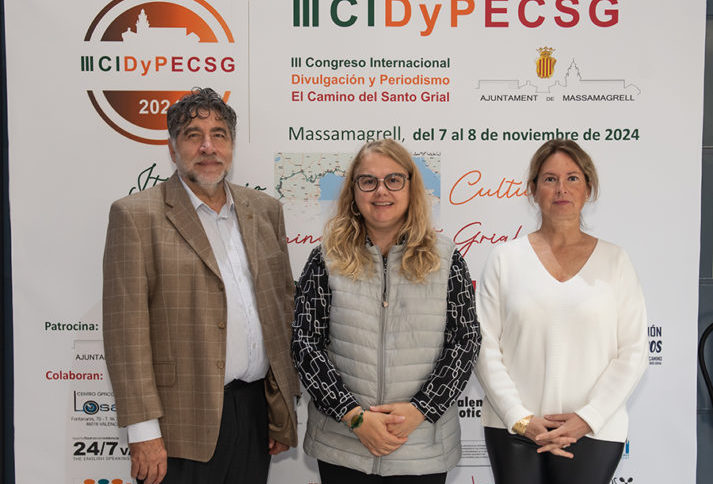
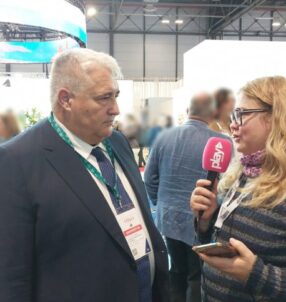


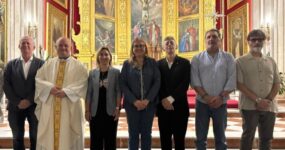
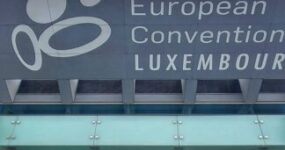


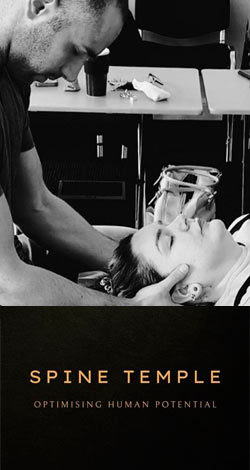















Leave a comment